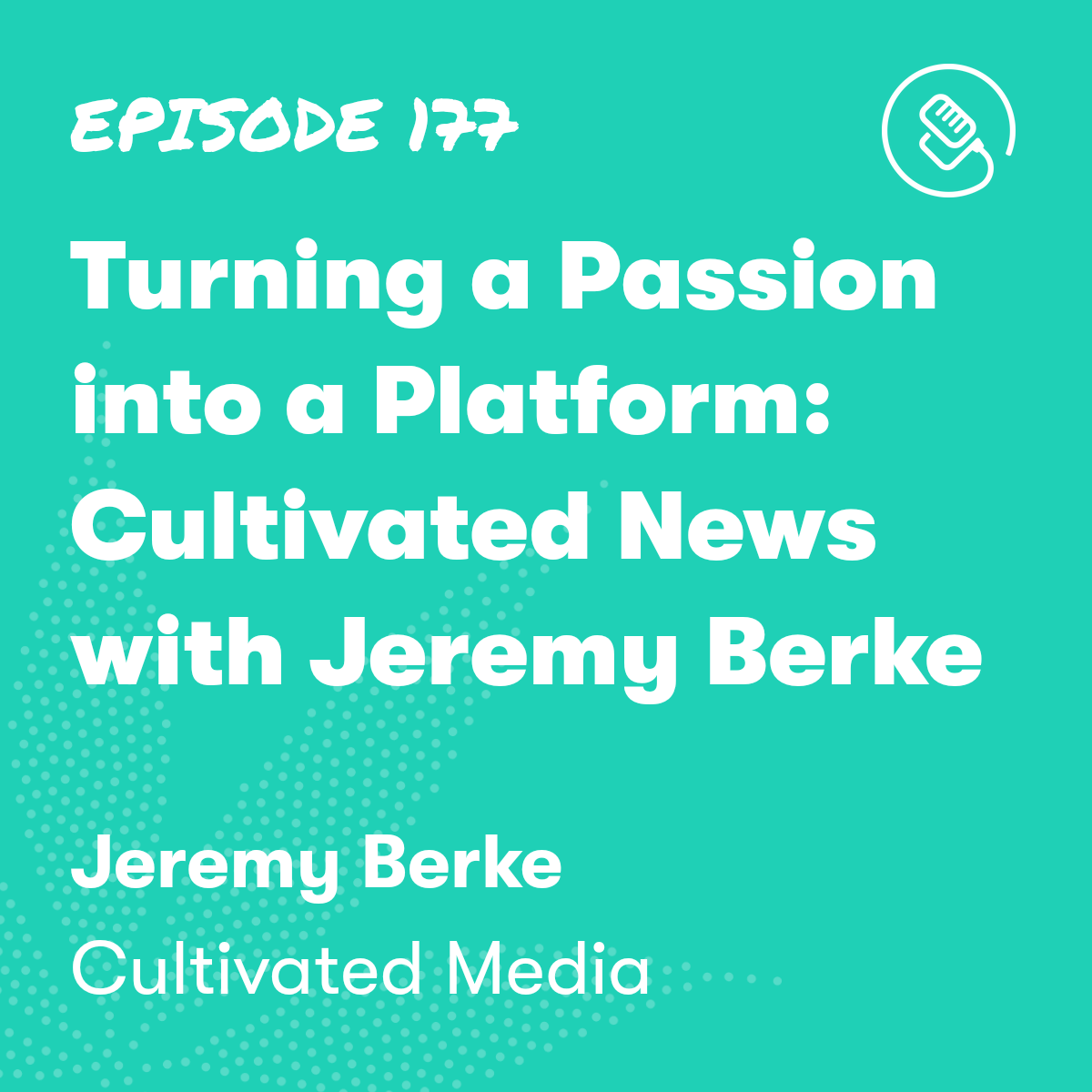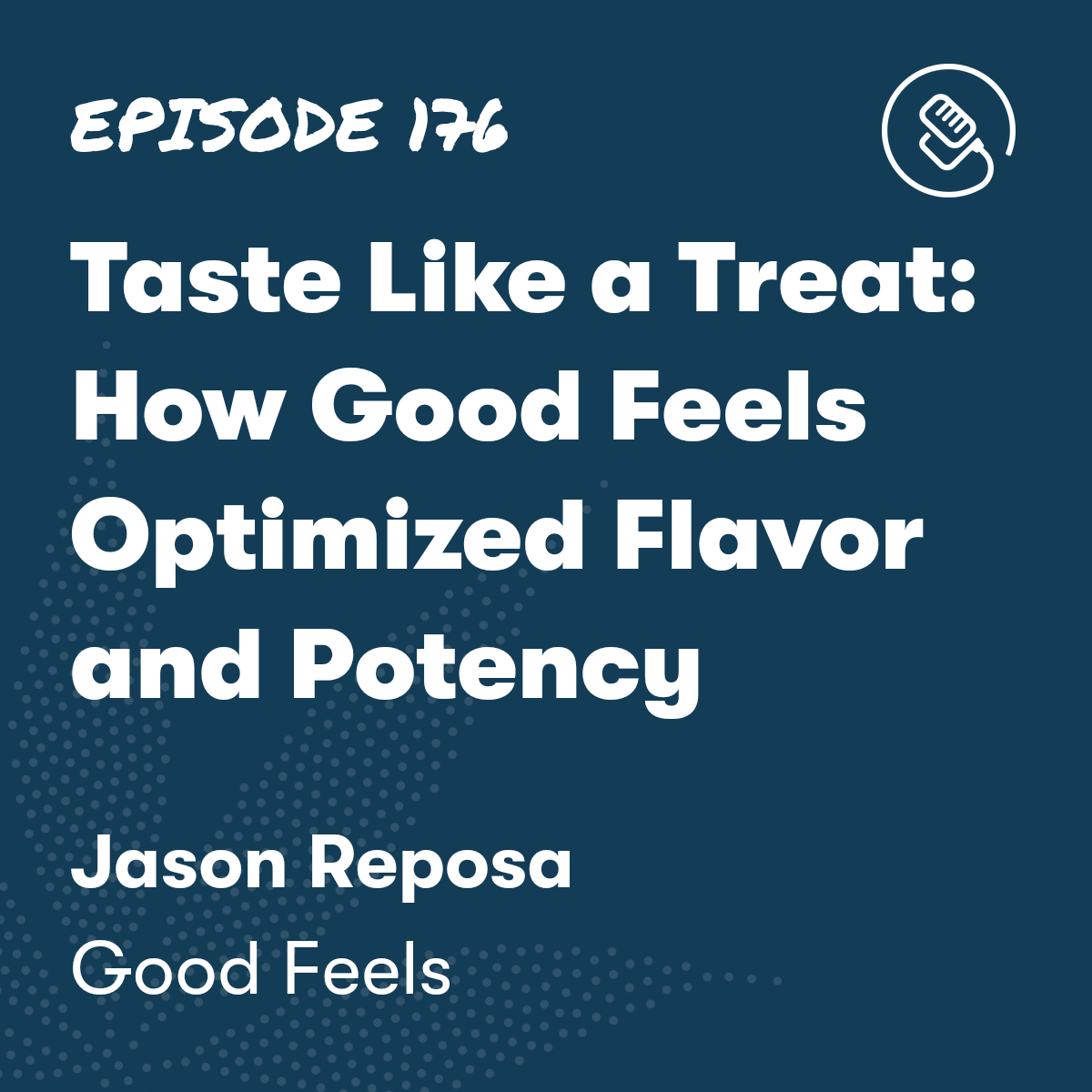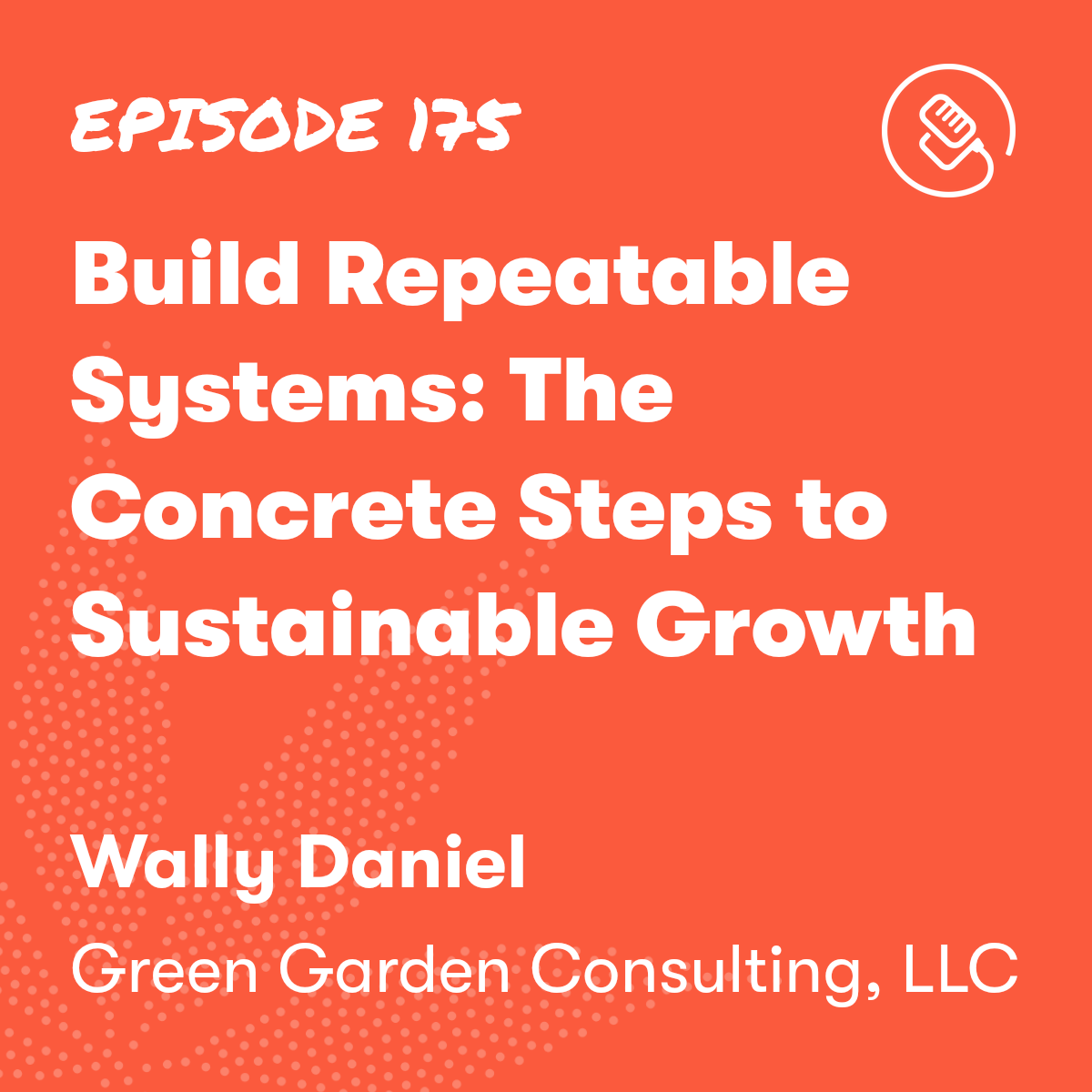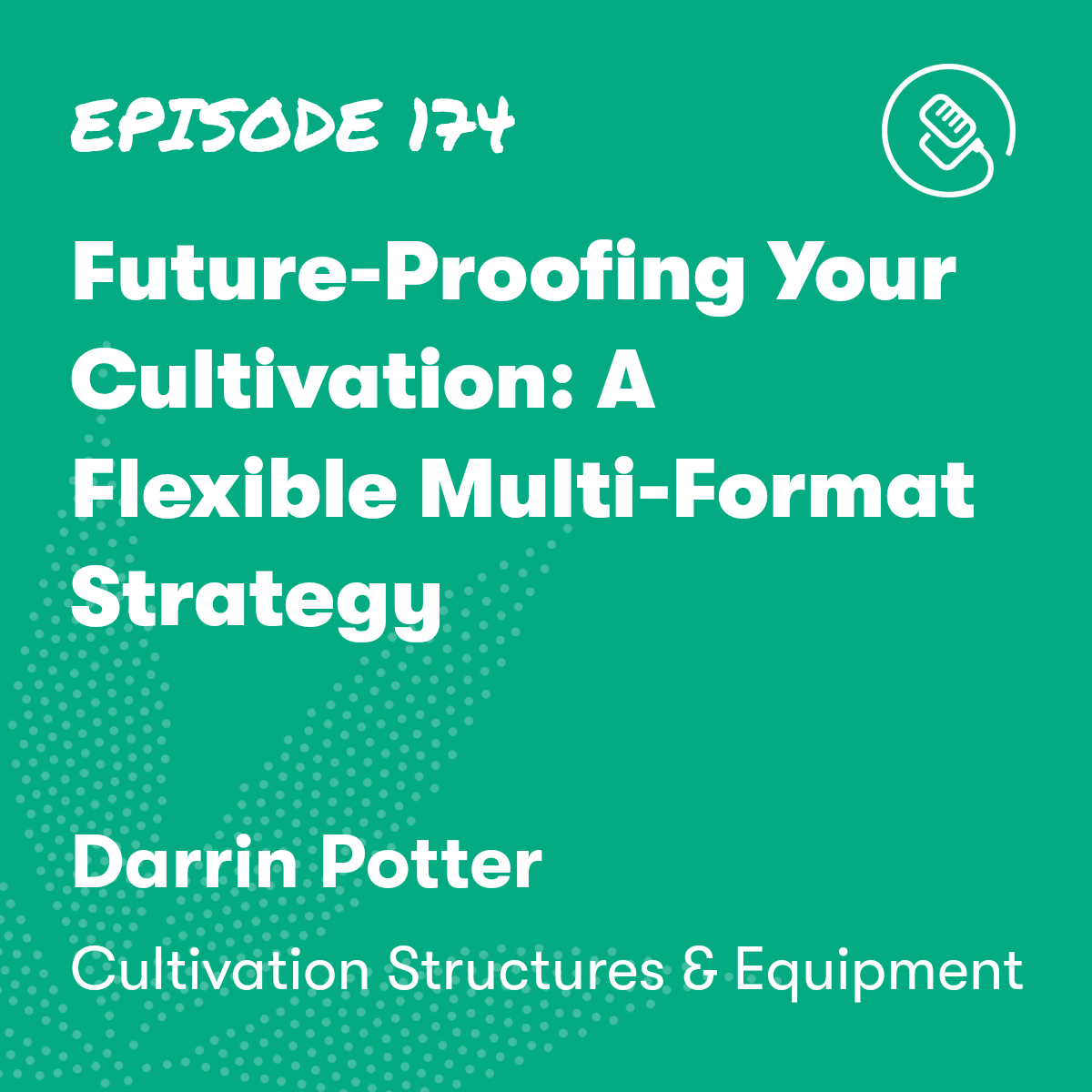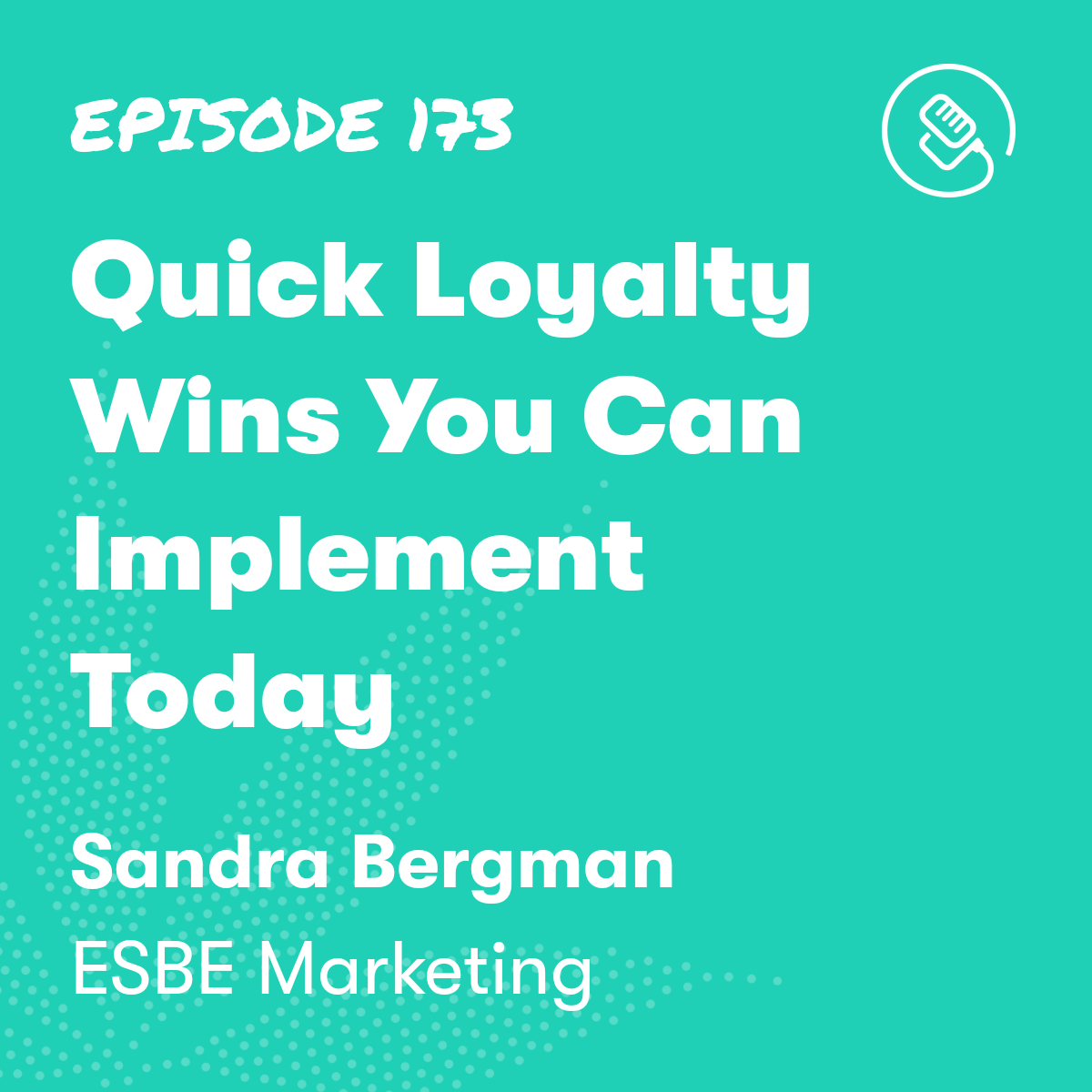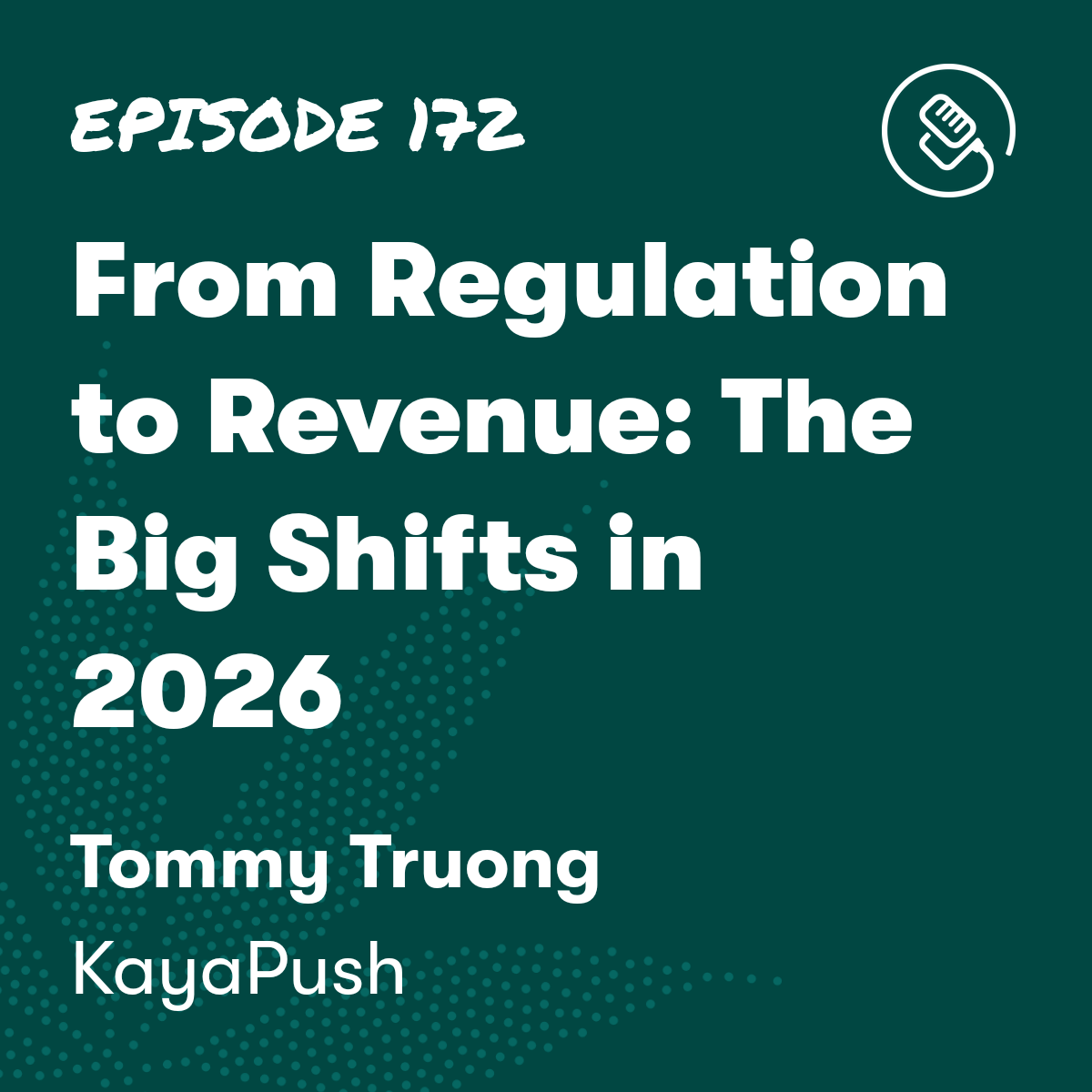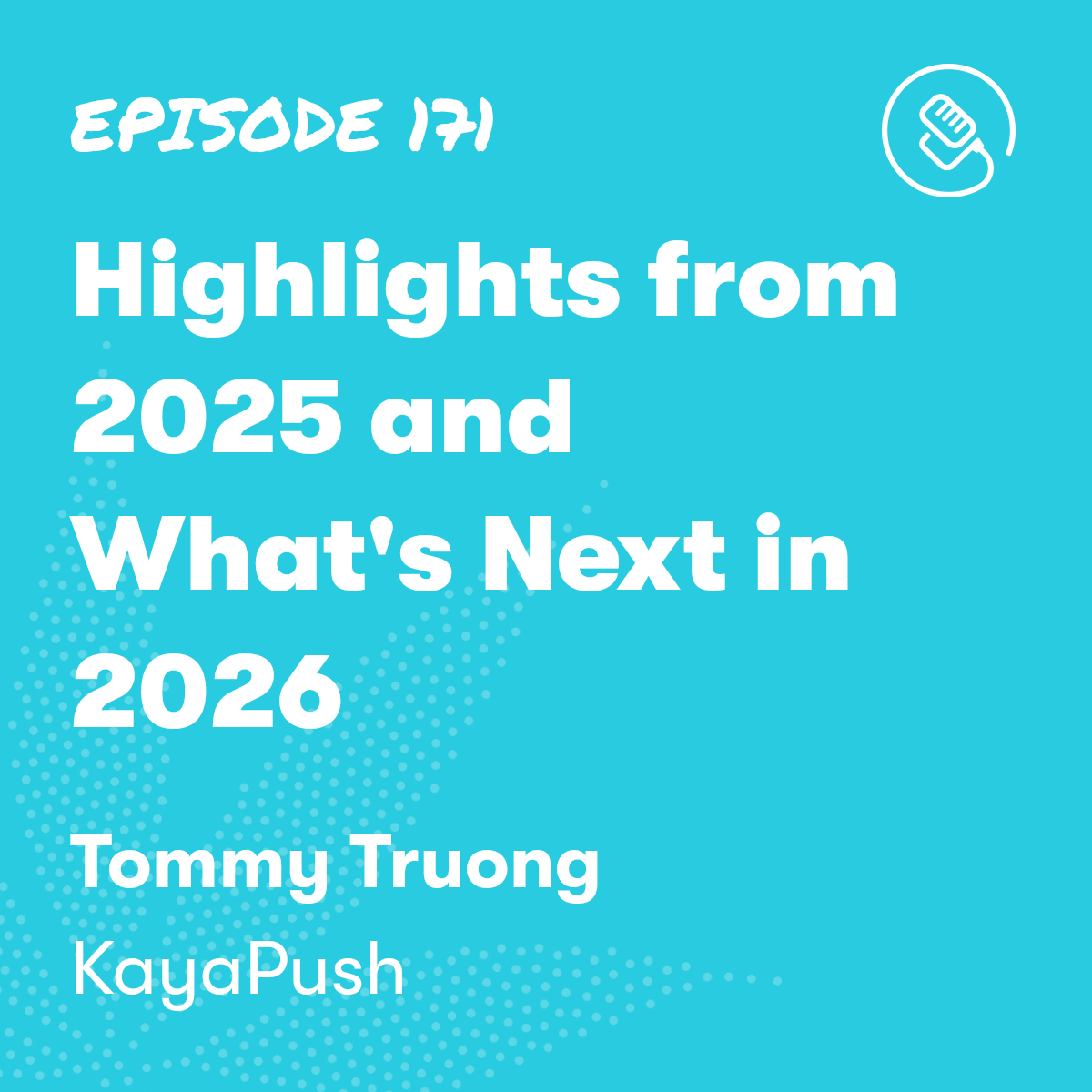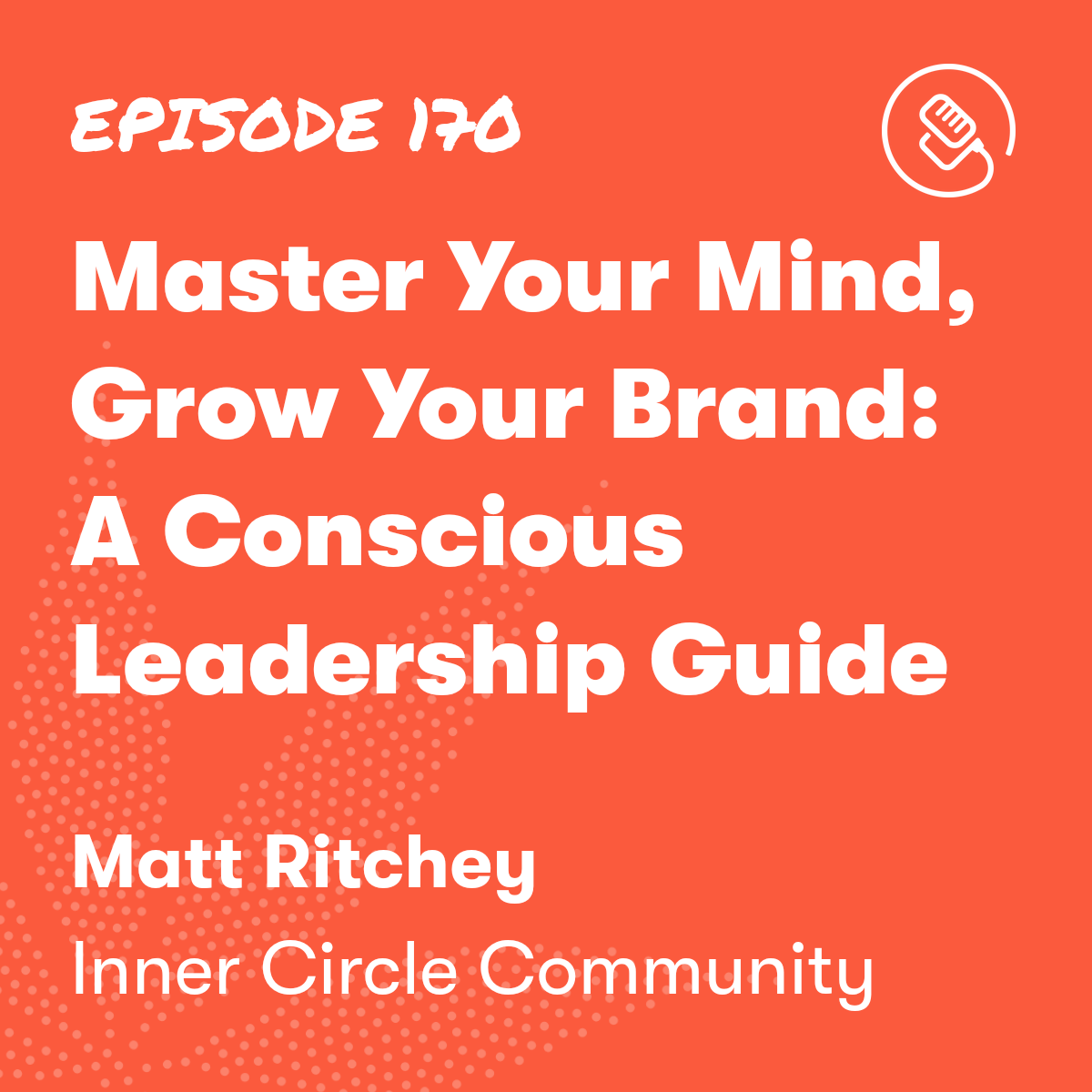

Building an Indigenous Owned Cannabis Company with Seven Leaf
Episode Description

Episode Transcript
Tom Mulhern: Today on the show. We have a very special episode. We are talking with Dianna Tarbell, a general manager of Seven Leaf and Myan Adams who's the sales manager at Seven Leaf and Seven Leaf is a 100% Indigenous owned and operated cannabis producer out of Ontario.
They're working to promote their community of Akwesasne in Ontario. The stories and the real business insights that both of them shared, I think are gonna be not just moving but compelling to you as the listener to really invest in Indigenous owned businesses in your community.
And, I had a fantastic time talking with them and I can't wait to share this episode with you. So let's dive right.
Tom Mulhern: Dianna Tarbell is the general manager of Seven Leaf, which is the first 100% Indigenous owned and operated cannabis producer to receive a health Canada license. Prior to her role at Seven Leaf, Dianna has held multiple financial management positions within her community of Akwesasne. Most notably as the general manager of the Akwesasneas name Mohawk casino.
Myan Adams graduated from a community school with a full Mohawk language, immersion curriculum, Myan excelled in academics and athletics, graduating from Cornell university while playing division one lacrosse he's returned to Akwesasnes where he is a business owner, a lacrosse coach, and a vital member of the Seven Leaf team where he currently holds position of sales manager.
The story of Seven Leaf began with the idea. And then words and then actions. They're a team of like-minded and motivated Mohawk professionals who believe that the ultimate success of Seven Leaf lies in the pride of their entire team. Their motto is happy people grow happy plants.
So Myan Dianna, I just wanna welcome you to the Kaya Cast. And I'm really excited to dive in and hear more about your story.
Dianna Tarbell: Thank you very much. I'm very excited to be.
Myan Adams: Thank you very much.
Tom Mulhern: I gotta start at the very beginning. We'll start with Seven Leaf and we'll also dive into your story, but what kind of inspired the launch of Seven Leaf?
Dianna Tarbell: It all started in 2013. The whole concept of Seven Leaf was formed. And basically we saw that within this new. Industry licenses were being awarded. And the idea came up with why not us? In hindsight health Canada had very many reasons why not us , but we overcame. We persevered. And in 2018, we were able to get our cultivation license.
In our past history within First Nations they're often overlooked when it comes to economic development. And we just wanted to be the ones that were in on the ground floor of a burgeoning industry. And it turned out to be really good that we did that and that when the cannabis act came out in 2018, once again, First Nations Councils were completely overlooked.
There was no consultation or consideration. And it, it was good that we were there and had the foot in the door. Oftentimes the question was what are we gonna do with Seven Leaf? Because they hadn't put any thought into the first nation aspect, but we were there front and center.
Putting out those questions, putting out those issue.
Tom Mulhern: Where does the name Seven Leaf come from? Cuz it's such a unique name. So how is that? How is that significant to what you guys do the vision of as your company and where did you come up with a name like Seven Leaf.
Dianna Tarbell: The concept of seven is a recurring theme throughout First Nations culture. And it really develops from the idea that we're always in the middle of seven generations. So the three generations before you. So starting with your great grandparents, parents, and then yourself in the middle, and then your children, grandchildren, and great grandchildren.
So we always need to look to the experience and the wisdom of the previous generations and use that to create our decisions for considering how they're gonna affect the future generations. That was clearly uh, the direction we wanted to go. We were understanding that this is going to be a generational company.
We never have the idea that we are ever going to not be here for a long time. Let the idea of failure enter our minds because this is gonna be a company where my children, my grandchildren, my great-grandchildren are going to be able to come to. And so with that in mind, that's how we created Seven Leaf.
And then later on our brand seven.
Tom Mulhern: Wow. That's such a beautiful concept. I love that. Like I think every time I see seven, now I'm gonna think of that generational. And I think it's so important for not just cannabis companies, but for everyone to have that mindset.
What kind of makes Seven Leaf unique or stand out from other producers in Canada? Obviously you were the first 100% Indigenous owned and operated, but what also is unique about what you guys are doing compared to other producers?
Dianna Tarbell: The first thing that made us unique is that we were the first ones on First Nation territory. And then also the fact that it was the Mohawk territory of Akwesasne , which Akwesasne is very unique in our geography, our territory straddles the us Canadian international border. It also straddles the provincial borders.
Quebec and Ontario. We're like a multi-jurisdictional , model here. And I live in St. Bridges, Quebec. I work in Cornwell island, Ontario. I have to go through New York state to get to those two places. So I cross the international border four times a day, at least. But I'm always within the territory of Akwesasne, so it's such a unique area.
The other aspect is that All of our employees are from Akwesasne. We all have the same shared experiences. We have multiple family members and working here as a community, we all share in the joys of the births, the weddings, the unfortunately the grief from the losses and such, and there is something to be said when you're, when all of your employees are from the same community, there is a sense of family.
There is a sense of, you're running into these people at the gas station at the store is at the movie theater is that everyone is intrinsically included in each other's lives just from being in the same community.
Tom Mulhern: I talk to so many business owners who talk about the community of the cannabis industry, but for you, it really is a community.
Myan I wanted to ask you about, cuz I know you have a history with compliance and some of that, how have you found, being in all of these different international borders and territories and different provinces, how have you found compliance issues with, going across all of those different jurisdictions?
Myan Adams: So luckily the Seven Leaf is actually in Ontario and we are pretty prominent in the Ontario market. So that's pretty easy for us. But going into it, when I was read the regulations, I was like, okay, this all makes sense. But I also knew there's all the system and maintenance that's required for following compliance and being compliant to your license.
Coming from a little bit of a brewing background. There's a process, but there's also every day you're putting out another fire, like figuratively. So I knew just with that, like I was like, all right, that sounds like it'd be an exciting job and pretty stable.
Cuz it's always needed cuz we have a license you need compliance.
Tom Mulhern: So tell me a bit about some of the different brands that you have, cuz I know Seven Leaf as a producer, you have a few different brands, so maybe some highlights of your brands and we can, in Canada we can purchase your product in different dispensaries. Is that correct?
Myan Adams: So we're uh, pretty prevalent across Ontario. And uh, So our initial brand was seven. That was the first launch. And that's our major kind of playing the whole field brand. We try to appeal to as many people as possible. It's very approachable and at approachable price point. So we try to get a whole kind of library of cultivars and try to get a decent amount of products, a lot of choice.
And then once we launched the sovereign brand, that was more catered towards our craft side. And what required, like we had to do a pheno hunt for our initial launch, but when we did the pheno hunt for sovereign, like we pheno hunted for almost a year and a half to two years, like a pheno hunt can, is something that can't be rushed, but we really took our time and sunk our teeth into it.
And they did a tremendous job. Like our growers, like they were had rooms just full of clones and every day they're analyzing, inspecting, measuring. Then once it came to fruition and created a whole plant, then we had to fill up a room with it.
And once it came to market, we were like, yes, finally we finally have a home run, rather just getting on base. We hit home, run.
Tom Mulhern: Yeah, I've seen pictures of your growth facility and it looks like cutting edge state of the art. Like it's amazing to see the scope of growth facilities, how gigantic they are. And you said you employ all local community members, right?
Dianna Tarbell: Yeah, that's true. And it's been one of the most enriching experiences, seeing the way that our cultivators have taken to the care of the plants. And in within first nation culture, there is a natural protective belief over. Over nature over the plants, and you can really see that in our cultivators.
One of the things that we did was we had family tours and each person was able to bring in members of their family and show them. The role that they play in putting these products onto the shelves and we were unprepared for the amount of emotions that the families were going to experience because they were overwhelmed when they saw the pride and the just excitement on the employees faces over what they do to get our seven and sovereign brands on the shelf.
That just extends to, when we get consumer feedback and everything like that, like everyone's so proud of the role that they play.
Tom Mulhern: And your motto. I mean, I love the motto. Happy people grow, happy plants. So what are some ways that you keep those employees really happy and engaged? Because it sounds like. You know, you, you've got a great place to work, a fun place to work. And so what are some of the ways that you're doing that? And then we'll also talk about some of the ways that you're growing the local community, but how do you keep your employees so happy that they wanna bring their family and show off where they work?
Dianna Tarbell: The most fun events are actually coming from within the employees themselves. Like they'll organize a potluck or a barbecue and people are coming in and bringing, their. Their chicken recipe that is to die for.
And it's just like all of these talents within our staff and it's just something to revel in, that people are willing to share that kind of part of their lives with their, your work environment.
Tom Mulhern: If you see someone that's kind of that, a level person on your team like, are you working actively to kind of develop them? How are you working to really boost up those people that you see like, oh, these are future leaders?
Dianna Tarbell: That's one of the challenges of an Indigenous community driven business is that you don't have those cannabis industry specific skill sets, able to walk in the door. So everything we do is about growing from within. The employees that we have here they may have got their university degrees in all different areas.
And yet we find a place for them on our team and we find a way to, to tap into their expertise.
We have leadership training and I do the classes and a lot of these employees, this may be their first job, so they're not used to any kind of supervisory
responsibilities or anything. So I do a lot of that kind of supervisory trainings, how to have those tough conversations, how to set goals, how to hold accountability, things like that. But also we go through a mentoring relationship. So as we find someone within the industry and we are developing those relationships for collaboration, I get immediately take an a Seven Leaf employee and attach them to that person.
And they are learning how to develop those relationships, how to make those deals, how to present things to, to. The provinces, for example and, especially in regards to us getting into commercial sales and everything. And those mentoring relationships are really important.
We a hundred percent promote from within, so everybody sees the opportunity that's available and how quickly they can grow within this. The other thing that I wanna mention is I can clearly state that we have zero gender bias. There's not a glass ceiling here.
There's no restrictions. As far as do we pick a male or a female for the job? Our community of Akwesasne. Our Mohawk community in general are matrilineal. And we are completely well versed in the idea that women hold all sorts of roles. They are chiefs, they are business owners. They are artists.
They own their own businesses. Whatever role you can think of. We have women that have held those roles. And so it's never been a question. I was general manager of the casino. That was not a big deal. I was me general manager here. That is not anything unusual. We have a lot of women that are strong professional women within our territory.
So within our staff, I can tell you. Just as many strong female candidates that we've identified for leadership roles as I can the males. So that's one thing that's I always took for granted and it wasn't until I network and go outside our organization that I realize that it is not that way everywhere.
Tom Mulhern: And that's such a, an important thing to share out there because it, you look at the industry and it is pretty driven by male leadership. And so we need strong women like yourself that are like, no, I got a lot to add here. And I love the fact that there isn't a glass ceiling there, and that it's built into your community.
We need a bit of that in our community as well.
Dianna Tarbell: And all of this that we do, it results in our employees being able to hold their own among the whole industry. And that's really what we're trying to do. We're trying to say, you know, we had to fight along the way, but we are going to get to the same level that you are and we're going to be ever achieving more.
Tom Mulhern: Yeah. And Myan, you went through some of leadership training, correct? Share a bit about your story and how you kind of ended up where you are today.
Myan Adams: I went to a full Mohawk immersion school until sixth grade. And then once I went into high school, it was an oversight of. . I was never actually formally taught how to read and write in English. So I had to, I, so that summer before high school, I just taught myself how to read and write in English.
And then uh, I went to high school at salmon river and once I was there, I was slightly behind in terms of my reading and writing comprehension. And so they sent me to a kind of evaluative kind of. Course or a tutoring program. And then I took one test and was out of it like within a week.
And so I was like right up there with with everybody else. And then from there, I ended up going to a private school in Western, Massachusetts and then I got the opportunity to attend Cornell university and play lacrosse there. And so the whole time I was there, I was obviously a little bit of culture shock.
I've worked like really hard all my life, but that's where I had to like, okay, there's another level of working hard now. Like now it's gotta build on that. So for me that was a little bit of an adjustment, but I was able to adapt and Excel. And then from there I moved home. I got a degree in interdisciplinary studies, got bachelor's of science and came home for a couple years.
So we came back home and fortunately enough that's when Seven Leaf was just starting up and starting to put employment opportunities out there. And as soon as I saw that, I was like, okay, they're about to do legalization. I want to get in that industry. Cuz it's so entrepreneurial and so new and we're blazing a path. There's no set structure of a way to do something other than following being a client with your license.
But it's just this very new industry that I really wanna be a part of. And I was just started out with doing like administrative stuff. Helping out with projects, helping out a lot with our construction just like managing logistics and stuff like that.
And so when we first started, I was wearing a lot of hat. But that also gave me the opportunity of getting a little taste of what each section of the industry has. And then as we slowly built our business hierarchy I was able to slowly like gauge where I wanted to start leaning towards.
And then that's where I went into quality assurance for a bit, and then switched over to sales now.
Tom Mulhern: That's so cool. Cuz you're so entrepreneurial taking that initiative is so key in, in business and in life. And so that's really encouraging.
I wanna ask you guys, what are some of the bright spots that you've seen in the cannabis sector as far as Indigenous owned businesses?
And then what are some of the challenges that you've seen for first nations peoples that are wanting to get into cannabis?
Dianna Tarbell: It's uh, been really great for us lately that we've been having a real surge and consumer feedback in that people are happy to have the option to make a socially responsible purchase. And that's music to our ears because the consumers are saying they want to put their money where they know it's gonna make a difference.
And that's exactly what you can do by supporting Seven Leaf. Also the OCS has a social responsibility team that one of their mandates is to increase the diversity and inclusivity in this industry. And. All of this works hand in hand with what we're trying to accomplish.
On the other side of that coin for the challenges is. We continually have to make it clear that it is not enough just to rack up the number of Indigenous companies. You have to do something to help support their sales in order for anyone to survive. And so while yay, it's great that we have an Indigenous company, we still have to pay the bills and we still have to make these sales.
And that's the kind of thing that. The real conversations that we need to take place. And for example, in the province of BC, they have specific programs set up to the benefit of their Indigenous cultivators. And we just had a conversation with Manitoba and their provincial system is very encouraging, very supportive of Indigenous product.
Tom Mulhern: What do you see as the future for the industry, especially for Indigenous owned businesses, do you see more opportunity as some of these programs start up in BC and Manitoba, or do you see a long road ahead, a long, hard road ahead?
Dianna Tarbell: Seven Leaf has always had the opinion that we may be the first, but there's in no way do we wanna be the only, and right now there are six of us Indigenous LPs that are located on territory. Four of them are in BC. One is in Quebec and then us Seven Leaf in Ontario. We really see the benefits.
We've been reaching out to all of those organizations and the hope of building a relationship so that we can share our knowledge, share our resources and just help to build each other up. We really see that as having a strong network and that goes hand in hand with what we've always done with first nations.
We always reach out to have a network. And so there's always a transparency that occurs and um, Myan experienced a similar aspect of this in the craft brewing arena.
Myan Adams: In BC, when I, while I was a brewer there there's kind of a, a micro brewery, boom, going on. But I started out with like, I don't know, let's say there was 10, like within a year, it spread up to like 60 almost.
What they found was it was consumers going out and seeking them and they weren't in competition against each other. It was them against the big companies like Anne Hauser Bush, and Sapporo and Miller inBev. So they kind of banded together that way and just started sharing ideas like between the brewmaster and all the head brewers.
They would always be sharing ideas. They'd have get togethers and they'd get a whole like 10 companies and brew masters together. And they'd try each other's beers, like give each other notes and stuff like that. And so. the sharing of information and like nobody was signing NDAs or anything. Like, It was just like this tight knit community of like, Hey, if one of us succeeds, we're all succeeding .
Tom Mulhern: And that's really what the cannabis industry in north America is. It's this small community that we need to work. Because, eventually who knows, if it all gets legalized everywhere, these big, huge corporations could come in and wipe all of us out.
What are some practical ways for business owners, it may be a cannabis dispensary owner or a retailer to support Indigenous owned cannabis businesses like your own.
Dianna Tarbell: There's always shelf space, that's always important to us. We don't have corporate coffers. We don't have millions of dollars to put into marketing. When a dispensary owner is interested in carrying Seven Leaf product, it is literally Myan and our sales team that is talking to you that is on educating your bud tenders. That is going through the whole process. There is no um, wizard behind the curtain or anything. it's us.
Myan Adams: Yeah. I'll add to that too, is like the, our sales team is actually like a lot of our growers too. So like whenever they'll have an off, they have, like in between growers, they'll have some time to be able to attribute some time to me and they'll be like, okay, let's go on a sales call then. And so like whenever we go to in store, they're talking to somebody that actually handle the plant.
Tom Mulhern: That's interesting. And are you finding that there's a lot of reception from retailers across Canada to give you shelf space?
Myan Adams: So for the most part, the hardest part with the way they do orders on the OCS is they just get this huge list of all the products that are available for like new product launches and what's already on the market. And so we, you have to of sift through the weeds pun intended. But you gotta sift through the weeds a little bit just to find us and find our brand if you're familiar with it.
And the only other way that you'd know about us is if through like you knew us through social media or. I actually did a store visit, which we're still just shipping away because there's thousands of stores that still have to visit.
Tom Mulhern: In Canada we have truth and reconciliation date here in September. And, I think a great way for dispensary owners to kind of honor, that is to, yeah. Give that shelf space to, Indigenous owned businesses and really build those connections.
So if, if there is a, a dispensary owner, that's like, Hey, we need to, we need to get connected to what they're doing. How can they reach out to, to you or find out more about what's kind of coming up from Seven Leaf.
Dianna Tarbell: Maybe you reach out because of the social responsibility and you wanna support a brand that is literally we have the the wellbeing of 50 Mohawk families right here and we also have strong roots north charitable foundation and strong roots was created to do capital projects that improve the wellbeing of our youth and elders within territories.
And so a proceed of all of our Purchases on our seven and sovereign brands go to the strong roots, charitable foundation. With your purchases, you are literally enacting real change on our territory, but at the same time, we are not asking you to choose our products just for that.
We are confident that when you choose our products, it is going to add to your dispensary sales because your consumers are going to have a great reaction to them. We just need to get exposure to the consumer and it's really the dispensary owners that, that can do that. Reach out to us. Myans group has a full they'll sit right down with your bud tenderers and go through the product education.
And we'll make sure that your bud tenderers are being able to increase your sales as much as possible. You may come because of the Indigenous issue, but you'll stay for the products. We are absolutely, We are absolutely assuring you of that.
Tom Mulhern: You guys sound like you're obsessed with your community, but also with a high quality product. That's built into everything you do.
So I wanna thank you both for being on the show and I would encourage people to go check out the website, connect with Myan or Dianna.
Tom Mulhern: What a fantastic conversation with both Dianna and Myan, they're both such amazing people. And, they really had such compelling stories and their vision for impacting their local community of Akwesasnes really was.
I found it very compelling. I found it very moving that they have so much passion for what they're doing and they're able to invest in their local community. So my, encouragement to all dispensary owners, especially around Truth and Reconciliation day happening September 30th is to invest in those Indigenous owned cannabis producers in your community to give them shelf space, to give them promotions, to give them time to really listen to their stories and to connect with them.
We'll have all of the show notes, the links, everything. So you can get connected to Seven Leaf, or maybe there's a local Indigenous owned and operated dispensary or a producer in your community that you should reach out to. And, it's amazing to hear just the intention behind what they're doing and how that's infused.
Every aspect of their business. So again, I wanna thank Seven Leaf and the whole team there for sharing their special story and keep listening to the Kaya Cast podcast.

